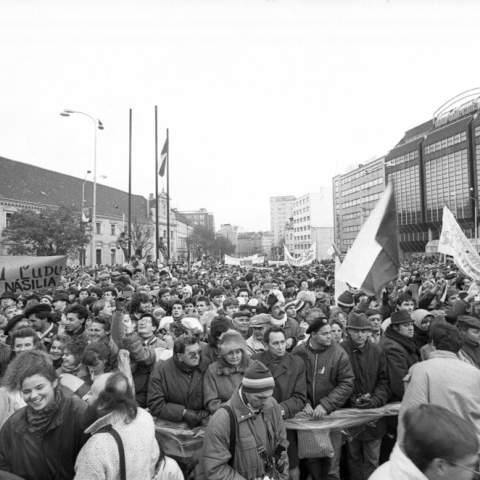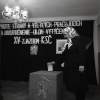
In 1989, akin to other countries, Czechoslovakia experienced a watershed moment with the fall of the communist regime. The "Velvet Revolution" on November 17, 1989, witnessed masses of people demanding political reforms, including a notable presence of Hungarians from Slovakia who contributed to this democratic transition. The Independent Hungarian Initiative (FMK), later evolving into the Hungarian Civic Party, emerged as a prominent movement advocating for change. Subsequently, in 1990, the political landscape expanded with the formation of two additional parties: the Együttélés Political Movement and the Hungarian Christian Democratic Movement. This introduction of a multi-party system activated the Slovak Hungarians, who actively participated in the emerging political arena.
Another pivotal moment occurred on January 1, 1993, with the establishment of the independent Slovak Republic. The dissolution of Czechoslovakia marked the end of the joint state, leading to the formation of the independent Czech Republic and Slovakia. While this decision was reached by politicians Vladimír Mečiar from Slovakia and Václav Klaus from the Czech Republic, it divided both Slovak and Czech societies, as well as the Hungarians in Slovakia, who had no say in the matter as no referendum was held.
The establishment of the Slovak Republic brought about challenges for the Hungarian minority, exacerbated by the nationalist policies of the Slovak government led by Vladimír Mečiar, which included several anti-Hungarian measures. In response, Hungarian parties in Slovakia united under the Magyar Koalíció (MK) and successfully entered the Slovak parliament in the 1994 elections. The 1998 elections proved decisive as the Hungarian parties consolidated into the Hungarian Coalition Party (MKP), securing representation in the legislature. With their support, the Mečiar era came to an end, and the MKP played a significant role in the Slovak government until 2006.

